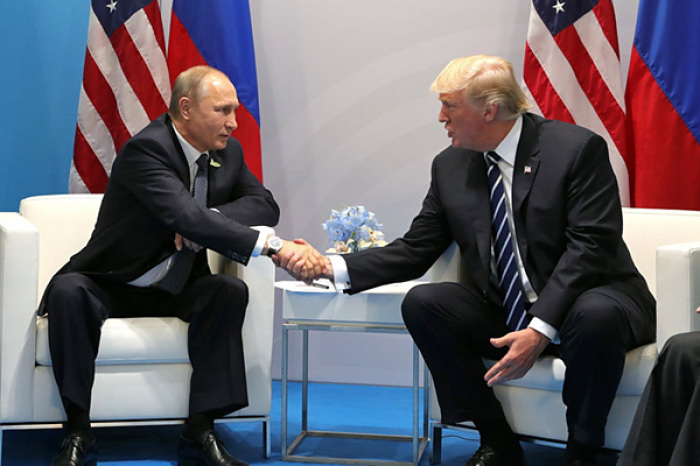'Trump Anxiety Disorder' Increasing, Therapists Say

The number of Americans suffering from "Trump Anxiety Disorder," a term coined by psychiatrists in 2007, is on the rise, claims CBC News.
"There is a fear of the world ending," Elisabeth LaMotte, the founder of the D.C. Counselling and Psychotherapy Center, is quoted as saying. "It's very disorienting and constantly unsettling."
President Donald Trump's supporters are also "feeling socially or familially isolated ... even if they don't support his tactics," LaMotte adds.
Anxieties among Trump's detractors, she continues, resemble those found in patients who are brought up by a parent having a personality disorder, with "traits like grandiosity, excessive attention-seeking and severe lack of empathy."
Politically induced stress levels increased from 52 percent to 57 percent over six-month period before, during and after the 2016 election, says Matt Kwong, a Washington-based correspondent for CBC News. He also quotes a February 2017 online survey which suggested that two-thirds of Americans, including Democrats and Republicans, were stressed about the future of the nation due to "extreme political polarization."
Overall, stress levels were the highest in a decade around the 2016 election, Kwong writes, attributing it to the American Psychological Association.
The term "Trump Anxiety Disorder" was used for the first time in a 2017 essay co-edited by psychiatrists from Harvard Medical School and the Yale School of Medicine. Clinical psychologist Jennifer Panning of Evanston, Ill, wrote that the "symptoms were specific to the election of Trump and the resultant unpredictable sociopolitical climate," Kwong writes.
Though not an official diagnosis, Panning wrote in the essay that the symptoms included "feeling a loss of control and helplessness, and fretting about what's happening in the country and spending excessive time on social media."
Kwong suggests the reasons include Trump's Supreme Court picks, his zero-tolerance immigration policy, his pro-life stand, his alleged submission to Russian President Vladimir Putin, and his confrontation with Iran, among others.
Anxiety levels over politics are perhaps the highest in the nation's capital, Alison Howard, a clinical psychologist in D.C., tells the Canadian newspaper.
Howards claims she meets patients "on a daily basis" who are "struggling to make sense of what's happening with this president."
"It's in our faces all the time," she adds. "People here are living and working in the same city where the pulse of the government is."
Most Americans believe that Trump is divisive. A January Quinnipiac poll of U.S. voters found that 64 percent believe Trump does more to divide than unite the nation.
In a December 2017 video message, evangelical pastor and author John Piper warned about Trump's "divisive rhetorical style and his adolescent pattern of blaming and his reckless Twitter form of leadership."




























